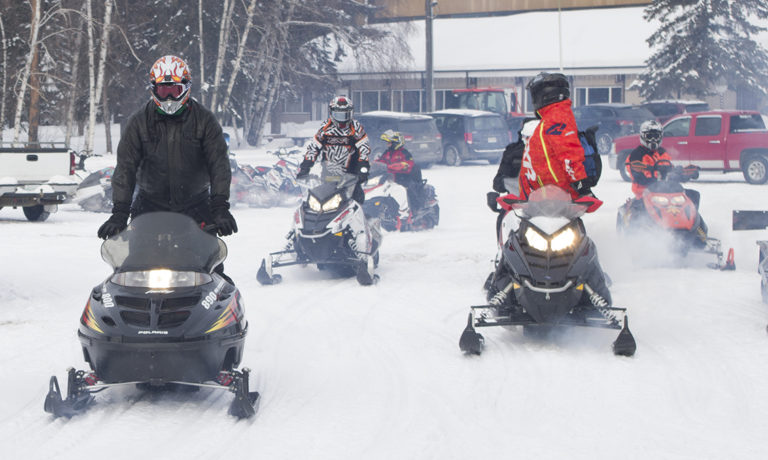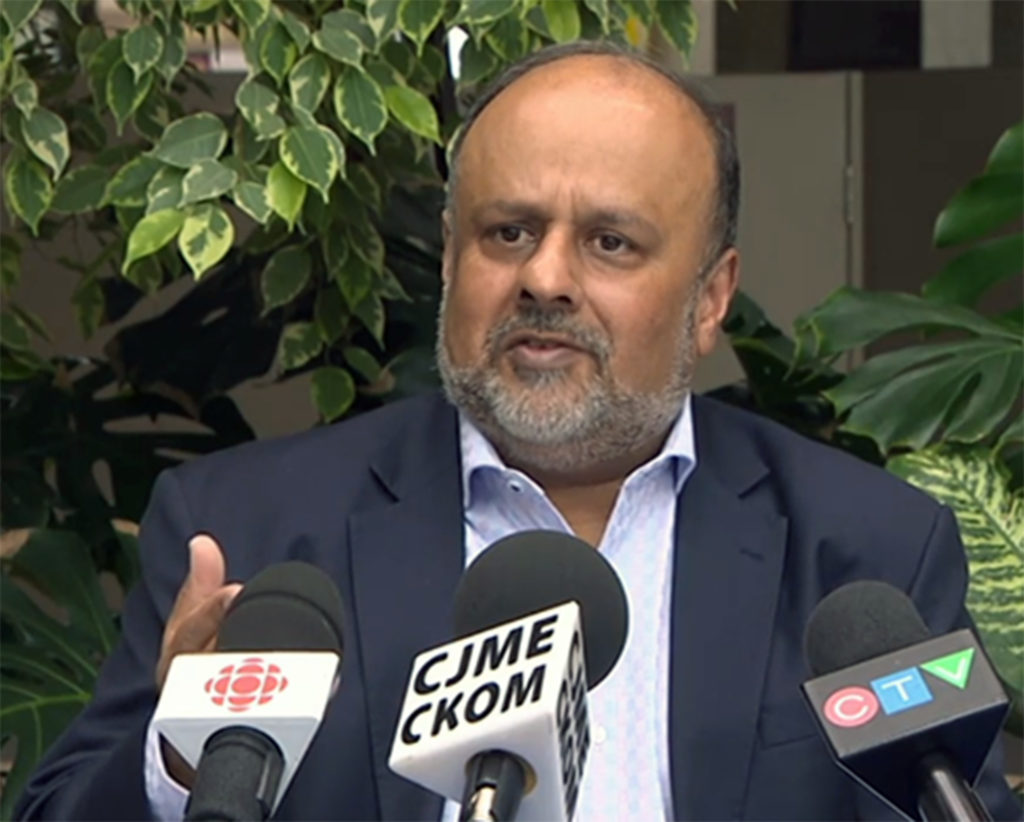
Editor’s Note: A provincial media release issued at around 1:30 p.m. stated that 18 additional cases were linked to the Christopher Lake snowmobile rally supper. However, the province later clarified that it was 18 cases total, 16 new and two previously reported. This story has been updated to reflect that.
Story updated for the final time at 4:20 p.m. on March 28.
The provincial government has linked 18 cases to a snowmobile rally dinner held in Christopher Lake on March 14.
That includes 16 new cases, plus the two original cases announced on Wednesday. Of those 16 new cases, three were already showing COVID-19 symptoms when they attended the rally supper.
Each person is self-isolating at home, and the government is urging anyone who attended the event to self-monitor and self-isolate. They are also working to contact anyone who attended the event.
Dr. Khami Chokani, Prince Albert’s medical health officer, said they became aware of the rally supper’s first COVID-19 case on Wednesday, March 25. They have since interviewed this person, and the people the patient had close contact with. Those experiencing symptoms have already been tested, or are scheduled for testing.
“This is extremely important to help contain the spread,” Chokani said during Saturday’s media update. “If you attended the rally and have not yet been contacted and are experiencing symptoms, please, please call health line 811 to be assessed.”
While roughly 110 people attended the rally supper, Chokani estimates that around 250 were at the rally itself. The province has already contacted 76 of them.

Dr. Saqib Shahab, the province’s chief medical health officer, said this case shows just how important it is to practice social distancing to stop the virus’ spread.
“While we love celebrating and getting together in Saskatchewan, this is not the time,” he said “This is the time for social distancing. This is the time to remain connected through other means, but not get together as groups to share a meal or have events where you are closer than two meters and are touching things that are passed back and forth.”
Shahab added that most COVID-19 patients will show only mild symptoms. He advised residents to stay inside as much as possible, and wash their hands before leaving their homes and after arriving back home.
The government announced plans to limit public gatherings to 250 people on Friday, March 13, but the orders did not come into effect until Monday, March 16, two days after the snowmobile rally.
Shahab said in hindsight, the cap on public gatherings should have been implemented earlier. However, he added that the province was ahead of the curve in applying those restrictions. Saskatchewan’s first presumptive COVID-19 case was announced on March 12, just two days before the snowmobile rally, and one day before the province’s 250-person cap on public gatherings
The province is tracking COVID-19 transmissions from two other mass gatherings held just before many restrictions were in place. So far, 11 of Saskatchewan’s COVID-19 cases have come from a curling bonspiel in Edmonton, while three more have come from a dental conference in Vancouver.
Shahab stressed that it’s important not to blame event organizers for the rise of COVID-19.
“We need to be very careful not to assign blame to any event,” he said. “No one wants people to come to an event and get sick, and so I think we need to be very careful about that. I think we need to be supportive of people who were at an event and are sick, (and) we need to be supportive of people who were there and are waiting out the two week period. Obviously, we need to maintain our physical distance, but be supportive in any way we can otherwise.”
Saskatchewan saw a surge in positive tests on Saturday, with public health officials announces 30 new confirmed cases across the province. The total number of cases now sits at 134. Four people have already recovered from the virus, while six others have been hospitalized—three in acute care and three in intensive care units (ICU). Only one of those inpatient cases is in northern Saskatchewan.
Only seven cases of COVID-19 are the result of local transmission. The rest are related to travel or exposure at mass public gatherings.
The majority of the cases are adults, with only five individuals ages 19 and under testing positive. Another 58 COVID-19 patients are between the ages of 20 and 44, while 49 are between the ages of 45 and 64. A total of 22 patients are ages 65 and over. Roughly 57 per cent of cases are male while 43 per cent are female.
The Roy Romanow Provincial Laboratory has conducted more than 8,000 COVID-19 tests, while Saskatchewan physicians conducted more than 25,000 telephone assessments between March 13 and March 23.
In addition to those tests, the Ministry of Health has sent additional staff to help the Saskatchewan Health Authority with contact tracing. The goal is to help ensure interactions with COVID-19 patients are tracked in a timely manner.
Shahab said he’s confident the tracking process is working well so far, and the additional staff are simply there to keep it that way.
